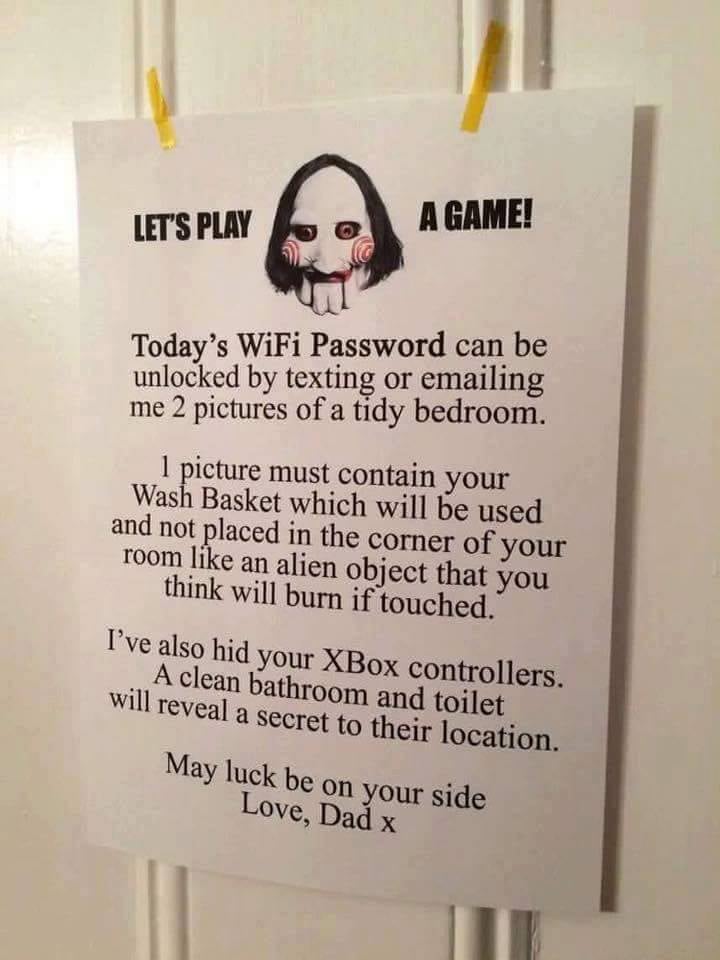
“It’s my room. I like it that way!”.
Fed up of nagging and battles over messy bedrooms? Should parents take a step back and give kids autonomy over their own space? Or is this setting them up for disaster later in life?
* * * * * *
Among the wet towels, lolly wrappers and discarded laundry, lurks the toast crusts, mouldy coffee cups and last week’s lost homework. ‘Floordrobe’ would be a euphemism for your teen’s bedroom floor.
They missed the memo from Marie Kondo!
If the adage "tidy space, tidy mind" holds true, you hate to imagine the tangled mess of your child's mental state. How will they hold down a job, manage their time or build meaningful relationships if they can't even keep on top of their own bedroom?
"It's the lack of respect that gets me," says my friend K about her daughter. "It's the defiance - like she's deliberately challenging my authority when she refuses to tidy her room. It's like she's stamping her little mark of control over 'her' territory."
K is half right; a teenager's personal space is one of the few areas over which they feel they have control. It's their 'safe place', their haven. But it's not really about respect (or lack thereof). Teens have a very different set of priorities.
The brain goes through a complete overhaul between early adolescence (around age 10) and the early twenties.
"A certain amount of mayhem is necessary, so tolerance is required," says Janey Downshire, teenage counsellor and co-author of 'Teenagers Translated'. "Their rooms are their spaces. You can set boundaries elsewhere in the house, because that is family space. There is no point nagging them - it won't change anything and may become a battleground. Don't impose your systems on them, they should be working all this out themselves. They have a lot to think about at their age. Finding time and mental space for a tidy room isn't a priority."
I have a 21-year-old nephew who is a domestic dream around the house when he stays with us; he will vacuum, mop floors, cook, tidy up and help with housework without being asked. Yet his own room (our spare room) is a toxic disaster zone during his stay.
I had friends at university who wallowed happily in disarray during their late teens but became positively OCD with their uncluttered minimalism in their thirties.
This is a very subjective way of saying (/hoping) that your teenager's squalid sleeping quarters are not an accurate indication of their future behaviour [although I am familiar with adults who continue to experience difficulty picking up socks from the bedroom floor ... a cheeky nod to my husband there].

Spotted on Facebook (Mum Central)
When should you let your child take responsibility for their own room?
When you are certain they know how to clean and tidy. Hopefully, this is something you've been teaching them since preschool. If not, or if your teenager still genuinely doesn't how to dust or change a doona cover, make sure you get them up to speed before allowing them autonomy over their bedroom.
When should you intervene?
When the state of their bedroom affects the whole family - we're talking stench, mould and infestation here.
Tips for long-suffering parents
- Agree on some standards - eg empty the bin regularly, no food in the bedroom, clean room weekly.
- Teach your child to differentiate between untidy and unsanitary. Embrace the chaos but insist on a reasonable level of cleanliness.
- Encourage your child to open the windows regularly and let the fresh air circulate. Give them an air-freshener.
- Don't tidy up after your child. Sometimes it's not until kids suffer the consequences of living in their self-styled pigpen that they appreciate the importance of structure and order.
- Try using choices and questions rather than nagging so that your child feels they have some control in negotiations, eg "We're missing some plates. Do you have any under your bed?", "Were you hoping to have something to wear tomorrow or are you happy to go with the wet uniform lying underneath that towel?", "Would you like some help?"
- Give your teen more responsibility. This should include:
- Responsibility for their own washing. Don't go in to retrieve their laundry - it's their fault if their favourite top is crumpled for a party or if they have to wear a smelly sports kit.
- Responsibility for shared spaces and chores - they should be expected to contribute to the cleaning of the rest of the house.
- Responsibility over room decor and storage solutions. Teenagers have too much 'stuff' these days. Encourage them to declutter, throw away and/or donate to the op shop. Take them to Ikea and let them choose containers, shelves and drawer sorters for stationery, socks, makeup etc.
- Responsibility for their own washing. Don't go in to retrieve their laundry - it's their fault if their favourite top is crumpled for a party or if they have to wear a smelly sports kit.
- Ban 'mess creep' - insist that your child's mess and debris doesn't extend into the rest of the house.
- If you can afford a cleaner, you can ask your child to tidy their room and clear all floors and surfaces once a week so that the cleaner can do their job! It's less personal, and often easier, to get your teen to tidy for a third party than to do so because you asked; they won't feel like they're 'losing face' or giving in.
Of course, there may come a time when your teen's room has got so out of control, they just don't know where to start. The thought of tackling the mountains of mess may seem so overwhelming that it causes them anxiety. In these situations, it's best to offer to help. Find a quiet couple of hours at the weekend, get your child to put on some loud music and blitz that room together. You never know, they might even enjoy it!










